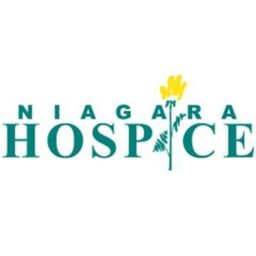By Anna Grande, Communications & Marketing Intern
Hospice is a word that has a variety of meanings to different people. It can spark misconceptions of what it really is and how it helps patients and families. Discussing hospice can be a taboo for many families. There are wide-ranging notions of what hospice care is and what it entails, and people who have never experienced its benefits may be unfamiliar with it.
Some families may be reluctant to seek outside help, while others might not know when to begin the conversation. People might associate hospice with “giving up” in the face of a late-stage illness. As unknown as hospice can be, it’s never too early, or too late, to learn more and look at all options for managing the care of a loved one.
I was unfamiliar with the services that patients and families receive when I started my internship with the Niagara Hospice communications department. Within a few days, I quickly learned more about the mission from speaking to the staff. Now I have a greater awareness of the importance of hospice and the wonderful impact it has on communities across Niagara County.
The mission is to provide symptom management to patients while enhancing quality of life for families and caregivers through comprehensive guidance and personalized support.
Comfort is the primary objective. When patients are admitted, it does not mean they have to leave the home. Hospice meets you where you need the help. If the home is the best environment to manage care and maximize quality of life, then hospice comes to the home. Most patients receive Niagara Hospice care in their own homes. Hospice is not only helping loved ones by managing their symptoms, but it also helps alleviate stress on the family.
“Hospice means we’ve given up.” This can be an understandable feeling. How long have you been taking care of your loved one? It can be a full-time job that leads to caregiver fatigue. Hospice helps you manage that care and allows you to focus more time on the family. You are not giving up; rather, you are recognizing that your loved one needs the best care possible.
For example, Sue, from Lockport, received help from Niagara Hospice for her husband who had Alzheimer’s disease for many months. She had been caring for him for almost 10 years, and it took a tremendous toll on both of them. Her husband needed her to be by his side and continue to love and be with him. The hospice care team was able to give them more quality time together due to all the services they provided.
Whether it is for a few weeks or up to six months, Niagara Hospice sees the value in supporting the whole family. The care teams do everything they can to preserve the sense of togetherness, reduce the caregiver burden and help maximize their precious time together.
If you do some research and talk to others who have experienced hospice, you will see how significant the services are in enhancing quality of life. The Niagara Hospice family of professionals takes great pride in caring for every family’s unique circumstances, and they will always put your family first when you call.

